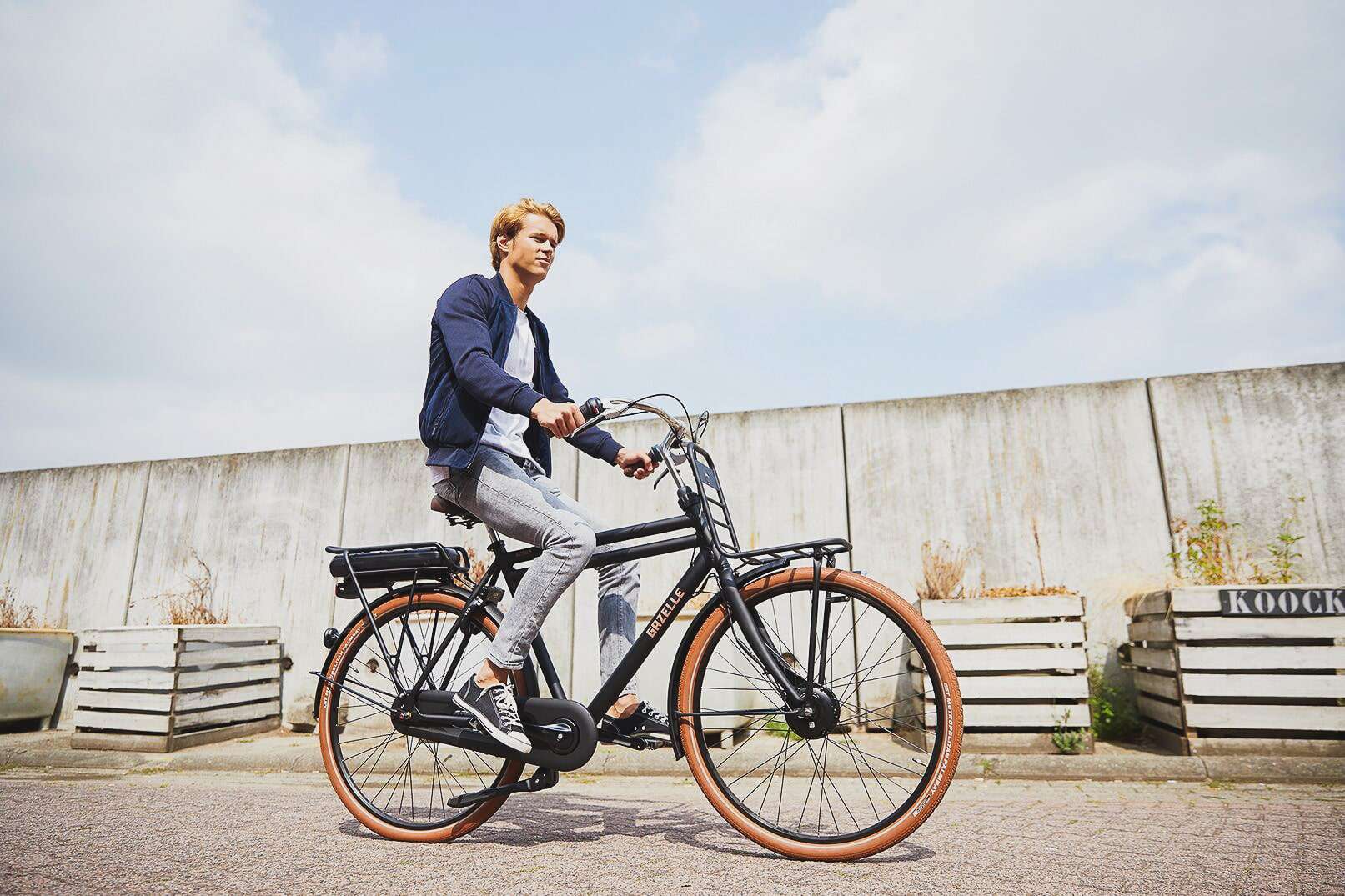Bikes are already one of the most sustainable modes of transport available. But the industry says there’s more to be done.
Last month, 70 cycling companies pledged to make the industry more sustainable, starting by reducing plastic packaging. The initiative, led by Cycling Industries Europe (CIE) and the Confederation of the European Bicycle Industry (CONEBI), aligns with the European Commission’s circular economy goals.
“Cycling is at the core of the mobility transition, making sure Europe is cleaner, greener and more liveable,” said Kevin Mayne, CEO of CIE. “The way our industry operates has to meet the same high ambitions, so we need to be at the forefront of a sustainable industrial sector.
“CIE and CONEBI have set an ambitious agenda to tackle important industry-wide challenges and to initiate pioneering initiatives and actions across the supply chain. This packaging initiative is the first of many ways we will act to reduce our environmental impact.”
According to the initiative, companies will commit to reducing plastic and eliminating all unnecessary packaging, while also increasing recycled content in packaging materials. By 2025, the member companies will ensure their supply chain packaging is reusable, recyclable, or compostable.
Individual company efforts
The announcement follows a commitment from leading bike components manufacturer Shimano. Last month it announced that it’s transitioning to more sustainable packaging for its footwear, service and upgrade parts, apparel, and much of its eyewear, which will come in new eco-friendly designs.
Shimano said it will eliminate “as much single-use plastics as possible” in order to to reduce C02 emissions as well as decrease its impact on ocean pollution.
It’s not only reducing packaging materials; it’s decreasing ink on packaging, and including 100 percent recycled and recyclable poly bags as needed.

“We believe these changes to more nature-friendly packaging better reflect our commitment and love of nature and ensure that future generations continue to enjoy the outdoors,” Shimano said.
Last year, leading bike brand Trek announced it had removed more than 433,000 pounds of packaging for its bikes. It’s on track to remove all plastic from its packaging by 2024.
Its commitments earned it a spot on Time Magazine’s list of the 100 Most Influential Companies of 2022.
“Bicycles are plenty eco-friendly, but building and shipping them still exacts a toll,” Time says. “Trek Bicycle in July became the world’s first major bicycle manufacturer to quantify that toll, publishing a sustainability report that found that producing and shipping each bike emits the same amount of carbon energy as an average car driving 430 miles. It now plans to reduce its reliance on air freight, use more sustainable materials, and consolidate shipments. The company’s hope, says president John Burke, is that ‘other companies in the bike business can do the same thing’.”
Pearl Izumi is also taking sustainability seriously. Starting with its SS22 collection, all garments will feature Higg Product Module stats that detail the CO2 used in production. Currently 40 percent of the brand’s clothing is made from recycled, renewable, or organic fibers. Its aim is to hit 90 percent by 2025. The move is part of its Pedal to Zero initiative, aiming to bring the brand to net positive by 2025.
“Our Social Purpose is to harness our business practices, products, and advocacy to consume less oil in order to fight the effects of climate change,” Aaron Kutzer, social purpose lead for Pearl Izumi said in a statement.

“We believe the biggest opportunity to reduce oil use through our business is to inspire and empower people to ride bikes for transportation instead of driving a car. Seeing the miles to zero number reminds you that everything we buy has an impact, and so does our daily behavior. If you love to ride, we hope it spurs you into going by bike when you can.”
Last fall, sustainable fashion designer Stella McCartney partnered with Cannondale on a limited-edition bike. In 2020, the company introduced its first fully recyclable and plastic-free packaging for shipping bikes and parts, reducing its landfill contributions by 4,500 cubic meters—about a million gallons.
Cannondale also introduced a mobile bike tracking app that aggregates environmental data based on the equivalent of CO2 emissions an average combustion engine vehicle would produce over the same distance biked.
Tour de France
The Tour de France, the world’s most popular cycling race is also making strides toward a more sustainable industry. It says it has been committed to becoming a more responsible organization for nearly a decade.

“Alongside 12 other major international sports events, in 2017 the Tour de France was one of the founding members of the charter of 15 eco-friendly commitments, under the aegis of the Ministry of Sports and WWF France (the World Wide Fund For Nature),” it says. This charter is an adaptation of the United Nations’ 17 Sustainable Development Goals, adjusted for the sporting industries. Each year, it binds the Tour de France into achieving social and environmental objectives, the group says.
Its initiatives include a plastic pan, protecting sensitive nature areas, and promoting biodiversity, among other efforts.
This season’s race will also see tires made from recycled PET plastic bottles from Continental. It’s the first manufacturer to launch large-scale recycled tires. The tires will appear on the official Tour de France Škoda support vehicles of the A.S.O. (Amaury Sport Organisation).
“We support the Tour de France’s goals for greater sustainability,” commented Enno Straten, head of strategy, analytics and marketing, Continental Tires EMEA. “That’s why it’s only right for us to have the Tour vehicles driving on the latest and most sustainable tires that Continental can currently offer.”


